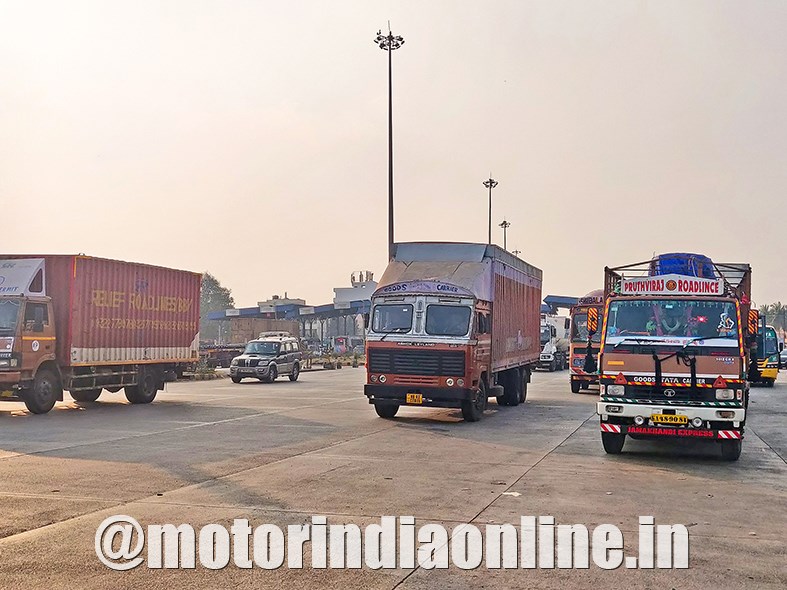#InTimesofCorona – Acceding to Mayday calls
It’s high time that the centre and state governments realize their key responsibilities in aiding the automotive and transport industries towards recovery.

It’s been almost six months. Despite confining ourselves to indoors, accustoming our lifestyle and businesses to lockdown restrictions and mediocre prospects, and enduring a sense of uncertainty in almost all aspects of our lives all these months, it is equally surprising that days have moved on so fast. It seems as if nothing much has happened, but also that a lot has happened in the last six months. Nevertheless, a sense of normalcy is being contrived upon us – with near total easing of lockdown restrictions and opening up of the activities – although the pandemic is far from over. As ‘conscious’ selves, we still go ahead with this ‘reified normalcy’ because we want our lives back asap – however ironic it may sound – given the high sense of uncertainty and deprivation we go through every day.
But, unlike our inner selves, it is not that easy for the businesses and economy to get back to normal in one go. Simply because of the fact that economic activities happen over real terms, not necessarily over falsified narratives of recovery or ‘dry’ promises. Yes, certain bit of optimistic assumptions and bullish attitude does improve the prospects of the economy, but we have seen in the past that overtly-optimistic markets hardly sustain beyond a stress point. What we are going through now is not just a periodic dry spell, but a killer blow to an economy which was already in the brink of an economic crisis.
India’s GDP estimates for the first quarter of FY 2020-21 dropped by a whopping 23.9 percent, with manufacturing output contracting 39 percent and transport-related services shrinking to almost half of last year’s figures. Private consumption spending – a key demand driver for the economy account for more than 60 percent of GDP – has contracted 26.7 percent, while at least four million jobs are lost since the lockdown in March. Whether this debacle is an act of god or an inevitability waiting to happen (out of looming crises) is a different discussion. When the impacts are so deep-seated and enormous risks continue to remain, mere narratives of quick recovery and green shoots without any substance can never help.
Experts opine that the only realistic path towards recovery is through government expenditure – not necessarily through investments on road building or other infrastructure as may in the industry would like us to believe – but through sound fiscal measures to boost private demand or consumption, arrest the slide in quantum of economic activities and job losses, and revive production. I don’t have to stress too much on the positive correlation between higher demand levels in the economy (with regard to all consumables and services) and commercial vehicle sales and utilization levels in the country.
In my previous article in this column, I underscored the significance of governments’ reassurances and fiscal measures (tax and toll cuts) in smooth and speedy recovery of the trucking logistics and public transport sectors. The vehicle and components industry must also be given some support in terms of GST rates reduction and sops in registration taxes to boost vehicle sales. These demands are neither new nor specific to pandemic crisis, but the automotive and logistics industries are behind the government for over two years to enable a favorable policy and macro-economic ambience in the country. But the governments are turning a deaf ear to these genuine demands, even when the economy slips further into crises.
I do come across certain ‘noble’ voices within the industry and related academics these days, as to why demanding support from the governments is not the right idea, but instead the businesses should work on their internal economics and strategize their own priorities without any ‘external’ aid. They are not even interested in discoursing on the real and critical affairs of the automotive and transport businesses, but rather likes to indulge in fashionable and unworldly imaginations. Perhaps, they are the exact ones who came running to the industry to propagate the ‘active’ role of government and ministerial personalities in facilitating the growth of the industries up until few years ago. Now that, in the last couple of years, the government is totally unwilling even to hear out the industry, let alone ‘facilitate’ with favorable policies, these folks are here to divert the industry’s attention from governments’ responsibility to that of individual businesses’ culpability in saving themselves. Fair and simple, the priority of these people is to save the face of the present government – and not the industry!
Showing the way is the Government of Maharashtra, which has waived-off road tax for the period of April to September this year, along with a 50 percent reduction in road tax for CVs for the next six months. Although this move may not relieve the transporters of all their woes, this is perhaps the only instance of a concrete relief from any governments (centre or state) in the country so far. With the automotive industry contributing to almost half of manufacturing GDP and about 15 percent of GST revenue, the road transport industry is literally carrying the domestic economy and its working masses on its wheels. It’s high time that the governments show some responsibility and leadership, by considering industries demands on tax cuts and other fiscal stimulus, while also doing all it takes to kindle private consumption – especially in rural sectors (the seat of the masses) – to prevent the economy from hitting the rock bottom. It’s time to voice out our concerns loud and clear to make the deaf hear. If not now, then when?
I’d love to know what you think, email your views to dhiyanesh@motorindiaonline.in